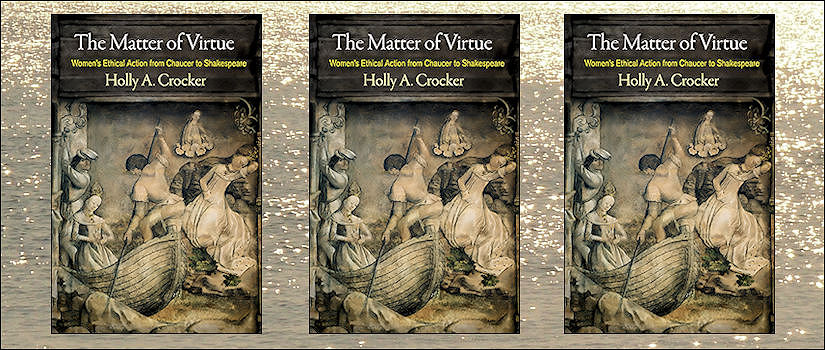New Monograph Examines Premodern Women, Ethical Agency
Professor Holly Crocker’s new book, The Matter of Virtue: Women’s Ethical Action from Chaucer to Shakespeare (University of Pennsylvania Press), argues that a new idea of what it means to be human—a conception of humanity that includes vulnerability, endurance, and openness to others—emerges when we consider virtue in relation to modes of ethical action available to premodern women. While a misogynistic tradition of virtue ethics, from antiquity to the early modern period, largely cast a skeptical or dismissive eye on women, Crocker seeks to explore what happened when poets thought about the material body not as a tool of an empowered agent whose cultural supremacy was guaranteed by prevailing social structures but rather as something fragile and open, subject but also connected to others.
After an introduction that analyzes Hamlet to establish a premodern tradition of material virtue, Part I investigates how retellings of the demise of Criseyde in Chaucer, Lydgate, Henryson, Tudor short verse, and Shakespeare structure a poetic debate over the potential for women’s ethical action in a world dominated by masculine violence. Part II turns to narratives of female sanctity and feminine perfection, including stories by Chaucer, Bokenham, Capgrave, Lodge, and Spenser, to investigate grace, beauty, and intelligence as sources of women’s ethical action. In Part III, Crocker examines a tension between women’s virtues and household structures, paying particular attention to English Griselda- and shrew-literatures, including Shakespeare’s Taming of the Shrew. Crocker concludes by looking at Chaucer’s Legend of Good Women to consider alternative forms of virtuous behavior for women as well as men.
